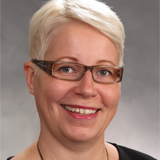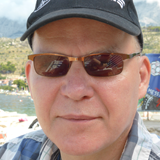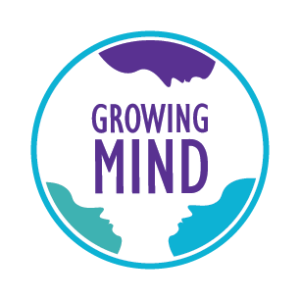FOR SCHOOLS
On this page, you can find information on taking part in the Growing Mind research project.
We are working in collaboration with schools, teachers, and principals, with the aim of supporting students’ learning and positive development, and finding new and functional solutions for developing schools. Our research take place in cities around Finland. Schools and participants take part in one or more of the studies described on this page depending on the city.
During the six-year research project, we will gather different kinds of research data from students, parents, teachers, or principals, always informing participants and requesting their consent separately. Schools take part in the research at different levels and in different ways. Some schools participate in gathering survey data from students, others in pedagogical projects, and yet others in developing the entire school culture.
STUDENT SURVEY
From digital pedagogy to school engagement
In the Growing Mind project, we have researched children’s and adolescents’ learning, motivation, and well-being as well as digital technology use at school and during spare time. The aim of the research is to find ways of making studying a more exciting experience with the use of digital pedagogy, and improving students’ well-being. The research supports the aims of the new curriculum, and the development of students’ future skills.
The broad research data has been gathered using online questionnaires from students born in 2006 and 2008 in the Helsinki area schools. The first data collection of the longitudinal research was conducted in the autumn of 2019, among then 5th and 7th graders. Survey data was collected annually from the same students for four years. A small portion of the survey participants also took part in the brain research conducted as part of the project, in which mathematical operations performed by the students were examined with brain-imaging methods.
The questionnaire data is also part of Katariina Salmela-Aro’s and Kirsti Lonka’s Bridging the Gaps research project, which examines the effects of digitalisation on adolescents’ learning as well as the development of their emotions, motivation, and interaction. The research is conducted in co-operation with the University of Helsinki and the City of Helsinki Education Division.
CONTACT

Johannes Gale, University of Helsinki
johannes.gale@helsinki.fi
TRAINING PROGRAMME FOR SUPPORTING ACADEMIC PERSISTENCE
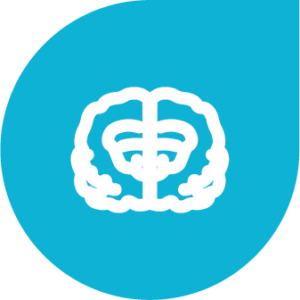
We have examined students' mindsets more specifically, their implicit theories of intelligence, giftedness, and creativity. We are interested in students' mindsets and the relation of mindsets to adolescents' educational aspirations, school achievement, and technology use. We conducted mixed methods research to gain a profound understanding of how do the mindsets of intelligence, giftedness, and creativity appear among Finnish adolescents. Together with a large sample of student data we developed a growth mindset intervention that is constructed based on previous mindset intervention research and adapted to Finnish schools. The intervention was developed cyclically with the support of teachers. The intervention aims to meet the needs to support the downward trend of Finnish students' school engagement, and the decline of the school performance especially for students in need, and has so far been studied among 6th and 7th-grade students. The intervention includes six lessons including teaching about the mindsets, brain, and developing expertise with a variety of individual and group assignments during the lessons, and homework. The intervention is administered to the class by their classroom teacher who has been trained to teach the materials. The purpose of this research is to understand adolescent's mindsets in learning and to produce a pedagogically meaningful program for teachers to utilize alongside their daily practices.
CONTACT

Jenni Laurell, Tutkija, University of Helsinki
jenni.laurell@helsinki.fi
INVENTION PROJECTS

In the Growing Mind project we examined how creativity and innovativeness can be supported through inventions and design processes. In the invention projects, various digital tools are utilised for new inventions aimed at different end users. We have collaborated with the teachers and schools in the implementation of the projects. We designed the projects together with the teachers in workshops, and offered them training in the use of digital tools. Invention projects are cross-domain entities, but they can also be implemented within one school subject. We worked at different educational levels: in elementary school among 1st to 3rd graders and 5th to 6th graders, as well as in secondary school among 7th to 8th graders.
CONTACT
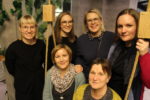
University of Helsinki
pirita.seitamaa-hakkarainen@helsinki.fi
GAME JAMS AT SCHOOL

In the Growing Mind project, the Game Research Lab of the University of Tampere has examined how creating games can be used at schools as a method of teaching and learning. We conduct game-making events, game jams, in collaboration with teachers and schools. Both digital games and more traditional games, such as cards and board games, as well as entirely new kinds of sports can be created in the game jams. Game jams can be cross-domain entities or they can be conducted within one domain. We work with upper-secondary students as well as secondary school. We also arrange training and workshops for teachers on the topic.
CONTACT
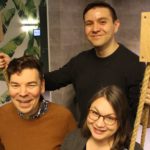
Riikka Aurava, Researcher, University of Tampere
riikka.aurava@tuni.fi
NEW METHODS FOR DEVELOPING FLEXIBLE MATHEMATICAL ABILITIES

In the experiments, we used gaming environments and new kinds of pedagogical models, in which mathematical thinking is combined with observing and interpreting everyday phenomena. The research-based gaming environments focus on both natural numbers and fractions and decimals. The Number Navigation Game developed in the University of Turku is a gaming environment that enables intensive practice of arithmetical operations with natural numbers, and strengthening the networks of abundant numbers and operations that are the bases of flexible mathematical thinking. Number Trace is a gaming environment developed in the University of Tampere for strengthening conceptual understanding of fractions and decimals. NanoRoboMath is a gaming environment being developed in the University of Turku, which aims to support flexible and adaptive ability in using arithmetical operations with fractions and decimals.
The pedagogical models for observing everyday mathematics are based on long-term basic research, which has found that spontaneous focusing on numerosity outside of organised mathematics lessons strengthens the development of deeper mathematical thinking considerably. In this project, we have been particularly exploring methods in which the conceptual understanding of fractions and decimals is strengthened through observation of quantitative relations within the environment.
CONTACT
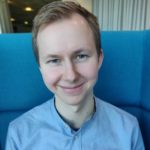
Saku Määttä, University of Turku
saku.maatta@utu.fi

Minna Hannula-Sormunen, University of Turku
mimarha@utu.fi
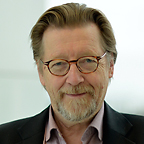
Erno Lehtinen, University of Turku
ernoleh@utu.fi
LEARNING ANALYTICS

Learning analytics means analyses of the data gleaned from digital learning. Using learning analytics, it is possible to identify, for example, learning challenges, group-work phenomena, and offer teachers precise information on the learners’ individual progress. In our project we have examined and developed new methods of learning analytics. The themes include visualisation of the learning process, the learning analytics of open problem-solving, learning analytics of 21st century skills, as well as bringing learning analytics within the reach of the learners themselves. Data has been gathered from electronic systems, using questionnaires, via observations, and with sensors such as proximity sensors and the so-called mood sensors (wearables). The methodologies used included both qualitative and quantitative research, as well as machine-learning methods.
HOLISTIC DEVELOPMENT OF SCHOOLS

The Growing Mind project has supported the systemic development of schools based on the schools’ own development work and their own aims and needs. Co-development has continued for 1–2 years with each school depending on the development and resource needs of each school. The co-development way of working is based on tested methods and the research groups’ broad competence and expert networks. For more information contact doctoral researcher Hanna Reinius.
CONTACT

Hanna Reinius, Researcher, University of Helsinki
hanna.reinius@helsinki.fi
MANAGEMENT AND CO-ORDINATION OF THE ENTIRE PROJECT
